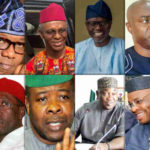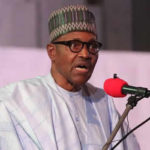Nigeria’s former president, Chief Olusegun Obasanjo, has urged nations affected by the xenophobic attack in South Africa to table appropriate motion before the African Union if the South African government refused to initiate appropriate steps to address the issue.
Obasanjo stated this in his reply to a letter written to him by the President of Inkatha Freedom Party, Prince Mangosuthu Buthelezi, on the recent xenophobic attack in the country, describing the development as sad and unfortunate.
The former president commended Buthelezi for alerting him and other African leaders on the repercussion the issue at hand might bring to the entire African continent.
He said, ” I thank you for your very kind and thoughtful letter of September 11, 2019 and I appreciate the honour done to me by specially writing me a letter on a very unfortunate and sad incident of xenophobia in South Africa. I also take note of your statements and other communications made in South Africa by you on the same issue.
“The xenophobia or Afrophobia going on in South Africa is an unfortunate issue for South Africa and for the whole of Africa. It is unfortunate in many respects. There are only two countries in Africa that have ‘Africa’ as part of their names: Central Africa Republic and Republic of South Africa.
ALSO READ: Kebbi govt partners USAID to improve health services
“For any of these two countries and, I dare say, for any African country to encourage or allow or not seriously sanction xenophobia against Africans in their country, it is a great disservice not only to the country where xenophobia takes place and the countries of the victims concerned, but also a great disservice to the whole of Africa and black race.”
Obasanjo recalled the role played by Nigeria in ending apartheid in South Africa, submitting that Nigeria believed it was her responsibility to do so.
“We, in Nigeria, if I may speak particularly for Nigeria, did all that we did for liberation in different parts of Africa, particularly in Southern Africa, including getting rid of apartheid in South Africa because we believed it was our obligatory duty to do so as Africans.
” We, as black people, believed and still believe that we would be second-class citizens in the world if we allowed any black people anywhere in the world, not to talk of Africa, to be treated as second-class citizens because of the colour of their skin without fighting against it.
“It is because of our belief in human dignity generally and especially afro dignity. We were motivated and goaded by principle and not by possession, position or praises. We were not doing it to get any reward or material benefit as such. We were doing it because we were convinced that it was our duty, our responsibility and our obligation to humanity and to the black race.
“That is why we, in Nigeria, in spite of our distance from the frontline of the struggle against colonialism in Southern Africa and apartheid in South Africa, we became, in terms of our participation, contribution, commitment and sacrifice, members of the frontline States.
” Whether that is recognised and appreciated or not, we really don’t mind as we believe we have done our duty as we ought to have done, and if occasion occurs in future where we need to open our doors, out of our humanity and Africanity, for people in similar situation of need as happened to people in Southern Africa and South Africa, we will do it again as we did in the past,” he added.
Obasanjo indicted the South African Police for “staying aloof” and watching miscreants and criminals committing crimes against fellow human beings is condemnable and not acceptable in any civilised society.
“We believe that Africans living in any other part of Africa must be treated as brothers and friends. If they commit any crime, they should be treated like citizens of that country will be treated when they commit crime which will mean applying judicial process.
“Moreover, the South African police and other law enforcement agencies must uphold the letter and spirit of the Constitution of South Africa, which stipulate that, “The South African Police Service has a responsibility to prevent, combat and investigate crime, maintain public order, protect and secure the inhabitants of the Republic and their property, uphold and enforce the law, create a safe and secure environment for all people in South Africa, prevent anything that may threaten the safety or security of any community, investigate any crimes that threaten the safety or security of any community, ensure criminals are brought to justice and participate in efforts to address the causes of crime.”
“Where the Police would stand aloof watching miscreants and criminals committing crimes against fellow human beings is condemnable and not acceptable in any civilised society. This was experienced in South Africa in recent times and it shows either incompetence or collusion on the part of the Police,” the letter read further.
The former President advised the South African government to send emissaries to the countries concerned to explain, apologise and agree on the way forward for mutual understanding, accommodation, reconciliation, and binding the wound to promote unity.
Obasanjo added, “In the final analysis, if South Africa fails to initiate appropriate and satisfactory steps to deal with the issues to pacify affected victims and work for reconciliation with the countries concerned to put an end to xenophobia, the concerned countries of the victims should come together to table appropriate motions at the AU level first and consider other measures if the situation is allowed to continue.”






